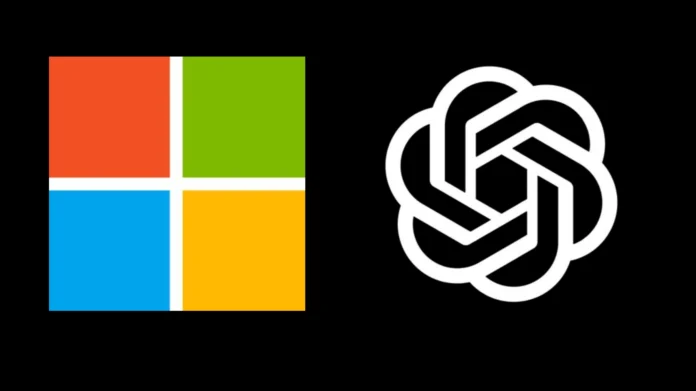Microsoft has a complex and intertwined history with OpenAI, having invested a substantial $13 billion in the ChatGPT creator as part of a long-term partnership.
Through this deal, Microsoft integrates OpenAI’s models across its enterprise and consumer products and serves as OpenAI’s exclusive cloud provider.
However, the tech giant recently referred to the startup as a “competitor” for the first time in an SEC filing on Tuesday.
In its annual 10K report, Microsoft included OpenAI in a long list of AI competitors, alongside companies like Anthropic, Amazon, and Meta.
Additionally, OpenAI was listed as a competitor in search, thanks to its newly announced SearchGPT feature, placing it alongside Google as a rival to Microsoft.
This shift in narrative may be an attempt by Microsoft to address antitrust concerns, as the FTC is scrutinizing the relationship, alongside similar investments by other cloud providers into AI startups.
Recently, Microsoft agreed to relinquish its board observer seat at OpenAI, a position it acquired following a brief dispute last autumn when OpenAI’s board temporarily dismissed CEO Sam Altman.
During this period, Microsoft CEO Satya Nadella offered Altman and other top executives positions at Microsoft.
However, SEC filings like this often contain overly cautious warnings to investors.
In Silicon Valley, being partners and competitors simultaneously is not uncommon. Back in 2000, Yahoo, the leading search engine at the time, agreed to display Google’s search results on its webpage.
This partnership lasted a few years until Google surpassed Yahoo in search, becoming the dominant gateway to the internet.
Despite their partnership, the companies were always threats to each other. (Yahoo owns TechCrunch.)
Given the history of such power shifts in the tech industry, it’s conceivable that Microsoft and OpenAI’s relationship could follow a similar path.
In March, Microsoft made a significant move by hiring the co-founders of the billion-dollar AI startup, Inflection AI, Mustafa Suleyman and Karén Simonyan, to spearhead its new Microsoft AI division.
This move underscores Microsoft’s substantial investment in its AI future, particularly in developing Microsoft Copilot, and highlights the company’s efforts to build an AI ecosystem that is increasingly independent of OpenAI.
This strategic move signifies Microsoft’s commitment to establishing its own AI capabilities while navigating the complexities of its partnership with OpenAI.
As the tech landscape evolves, the dynamics between Microsoft and OpenAI will likely continue to shift, reflecting broader trends in the industry.
The Future of Microsoft and OpenAI: Cooperation and Competition
The evolving relationship between Microsoft and OpenAI highlights a broader trend in the tech industry, where collaboration and competition often coexist.
Microsoft’s decision to classify OpenAI as a competitor underscores the competitive nature of the AI field, even among partners.
Antitrust Concerns and Strategic Shifts
Microsoft’s strategic adjustments, such as giving up its board observer seat at OpenAI, indicate a response to regulatory pressures and a desire to mitigate potential conflicts of interest.
This move aligns with broader antitrust concerns regarding the influence of major cloud providers over emerging AI startups.
Investment in Independent AI Development
By investing in its own AI division and acquiring talent from prominent AI startups, Microsoft is positioning itself to compete more directly with OpenAI and other AI innovators.
This investment aims to bolster Microsoft’s AI capabilities and reduce reliance on external partnerships.
Historical Precedents and Industry Trends
The historical precedent set by Yahoo and Google serves as a reminder of the fluid nature of tech partnerships.
While collaboration can drive mutual growth, competition remains an underlying reality.
The tech industry is replete with examples of partners who eventually become fierce competitors as they vie for market dominance.
Microsoft’s evolving stance towards OpenAI reflects the dynamic and competitive landscape of the tech industry.
As both companies continue to innovate and expand their AI capabilities, their relationship will likely be marked by both collaboration and rivalry.
This duality is emblematic of the broader trends in the industry, where strategic alliances often coexist with competitive ambitions.
The future of Microsoft and OpenAI will be shaped by their ability to navigate these complexities and leverage their strengths in the rapidly evolving AI market.




